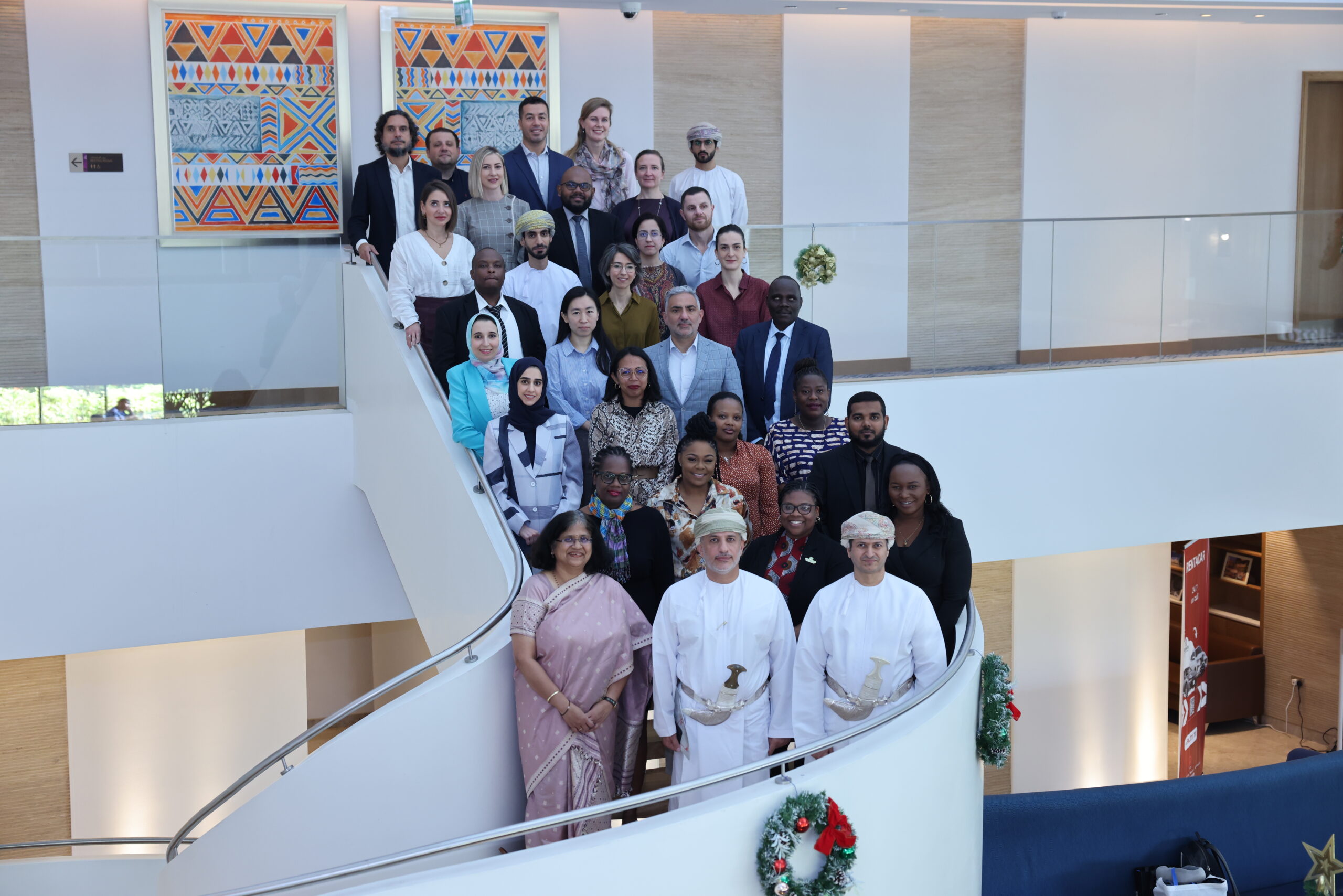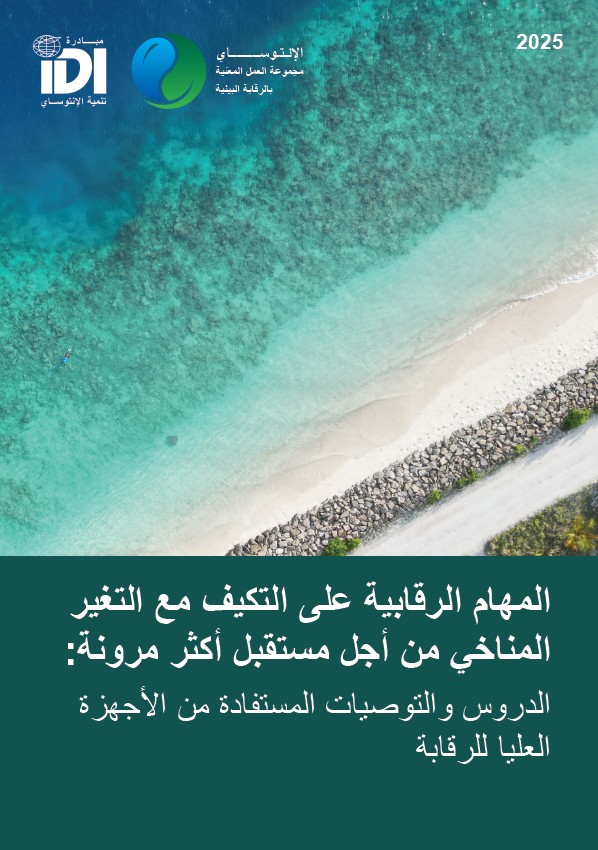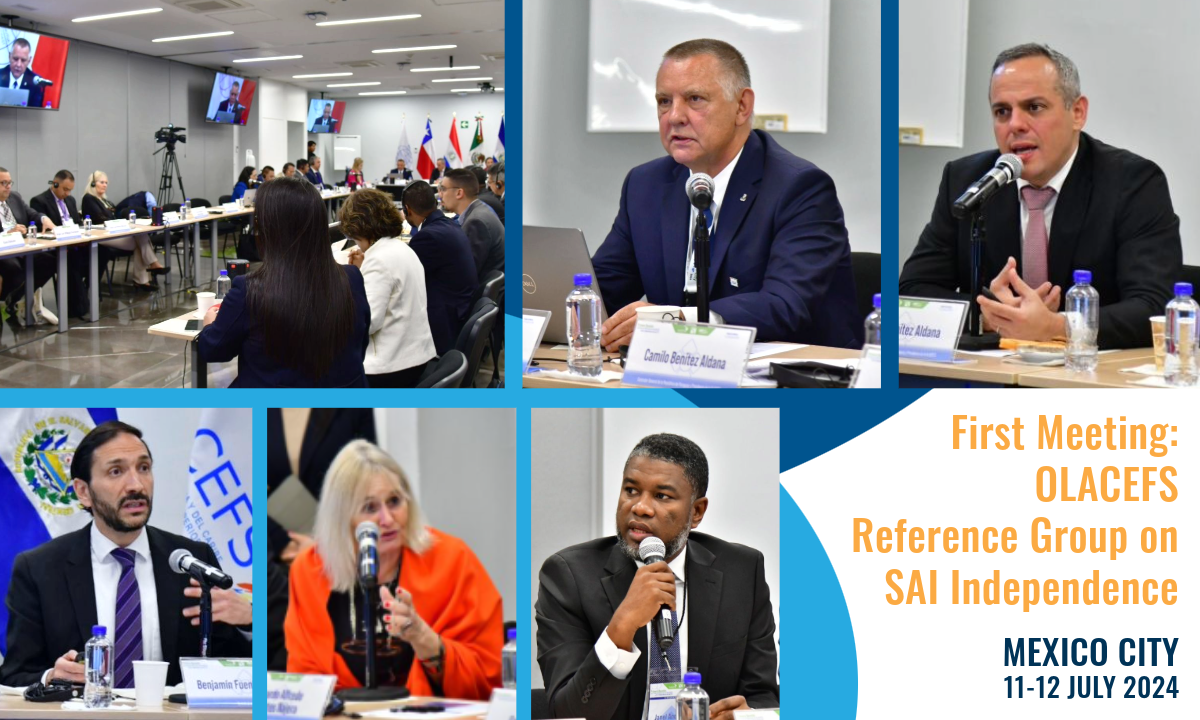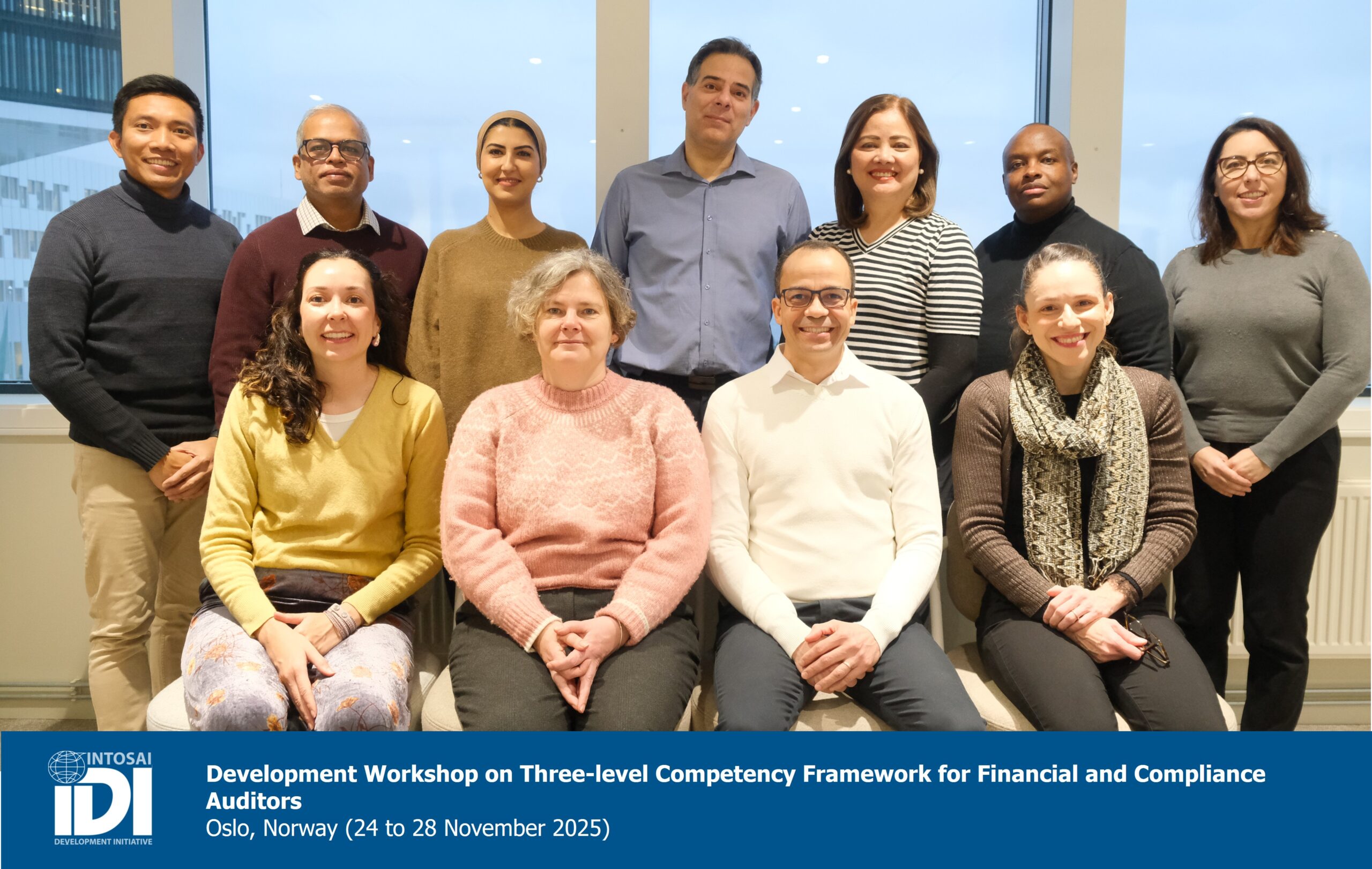IDI Aims to Empower Supreme Audit Institutions in the Region and Beyond
On July 11-12, 2024, the Supreme Audit Institution of Mexico hosted the inaugural meeting of the OLACEFS Reference Group on SAI Independence in Mexico City. The event was a significant milestone, gathering leaders and representatives from Supreme Audit Institutions (SAIs) across the OLACEFS region, along with key stakeholders from the INTOSAI Development Initiative (IDI). The focus of the meeting was to address the pressing issue of SAI independence through both reactive and proactive measures, offering a platform for discussion, knowledge exchange, and strategic planning.
A success, the inaugural meeting of the OLACEFS Reference Group on SAI Independence laid a strong foundation for future efforts. Participants left with a deeper understanding of IDI’s tools and initiatives available to support SAI independence, as well as a renewed commitment to collaborative action. As threats to SAI independence continue to rise, the importance of such gatherings cannot be overstated. The OLACEFS region, along with IDI, will continue to build on this momentum and leverage shared knowledge to uphold the principles of independence and accountability.
Background and Context
Previously, IDI has supported OLACEFS’ SAIs through various tools and activities, employing both reactive and proactive approaches to SAI independence. Since 2018, IDI has utilised the SAI Independence Rapid Advocacy Mechanism (SIRAM) to aid SAIs facing threats to their independence from political actors. The mechanism has addressed issues such as delays in the appointment process, dismissal of SAI heads, restrictions on access to information, and unjustified budget cuts. As shown in the latest IDI Global Stocktaking Report from 2023, an increase in reported threats to SAI independence highlights a concerning trend tied to broader global issues like the decline of the rule of law and shrinking civic space.
To counter these threats, IDI has also launched the Global Project on SAI Independence in collaboration with the OECD, the World Bank and and the International Monetary Fund. This project focuses on analysing informal factors affecting SAI independence from the perspectives of the Executive and Legislative branches. Additionally, the LEG SAI initiative supports legal units within SAIs, while workshops designed to strengthen collaboration between SAIs and Civil Society Organisations (CSOs) aim to enhance public accountability. During the Reference Group meeting, both programmes and their affiliated advocacy approaches were presented to and discussed amongst SAI representatives and advocates for independence.
The Reference Group led by IDI and OLACEFS is similar to other successful, regionally-based SAI Independence Reference Groups, such as in EUROSAI. The primary objectives of the OLACEFS Reference Group are to:
- Create a platform for discussion and exchange of experiences on SAI independence
- Encourage OLACEFS members to contribute to the improvement of IDI tools and initiatives
- Foster interest and participation in IDI’s activities related to SAI independence
Participants and Programme Highlights
The constitution of the reference group was approved by the XXXII General Assembly of OLACEFS, comprising the Presidency, Technical Secretariat, Presidency of EFSUR, and the Presidency of OCCEFS. The inaugural meeting invited all regional members following the EUROSAI-OLACEFS joint conference held earlier in the week. Please read below to get a recap and the key takeaways from the reference group meeting.
Day 1: July 11
The first day commenced with inaugural messages from representatives of the IDI, OLACEFS General Secretariat, and OLACEFS Presidency, setting the tone for the event and outlining the objectives and goals of the reference group.
Key Sessions:
- Presentation of Participants and Group’s Terms of Reference: Participants introduced themselves and shared their expectations, followed by a presentation and discussion on the group’s scope and goals led by the IDI.
- Opportunities and Challenges of Independence at OLACEFS: Comptroller General Camilo Benítez shared his vision on regional independence issues.
- IDI Initiatives and Coordination with OLACEFS: The IDI detailed its initiatives for INTOSAI member SAIs, emphasising the importance of collaboration.
- SIRAM Presentation and Discussion: A panel discussion on the SIRAM tool included testimonials from the SAI of Poland, highlighting real-world applications and impacts.
- Group Discussion on Independence Risks and Challenges: An interactive session facilitated by the IDI allowed participants to discuss regional risks and strengths regarding SAI independence.
Day 2: July 12
The second day focused on global initiatives and specific programmes designed to support SAI independence.
Key Sessions:
- Global Project on SAI Independence: The IDI presented the Global Project, prompting a discussion on its implications and potential benefits for the region.
- LEG-SAI Initiative Presentation and Discussion: Participants explored the LEG-SAI initiative, which aims to bolster legal support for SAIs.
- Strengthening SAI-CSO Relationships: The IDI led a panel on enhancing collaboration between SAIs and CSOs, presenting a programme of workshops to improve public accountability.
- Discussion on Subsequent Activities: The Chair facilitated a discussion on future activities for the reference group, setting the stage for continued engagement and action.
The meeting concluded with a closing message from the OLACEFS Presidency, encapsulating the event’s key takeaways and reiterating the commitment to safeguarding SAI independence. The collaborative efforts and shared experiences of the participants underscored the importance of regional solidarity and proactive advocacy in the face of growing challenges.
Initiative
Topics
Recent News
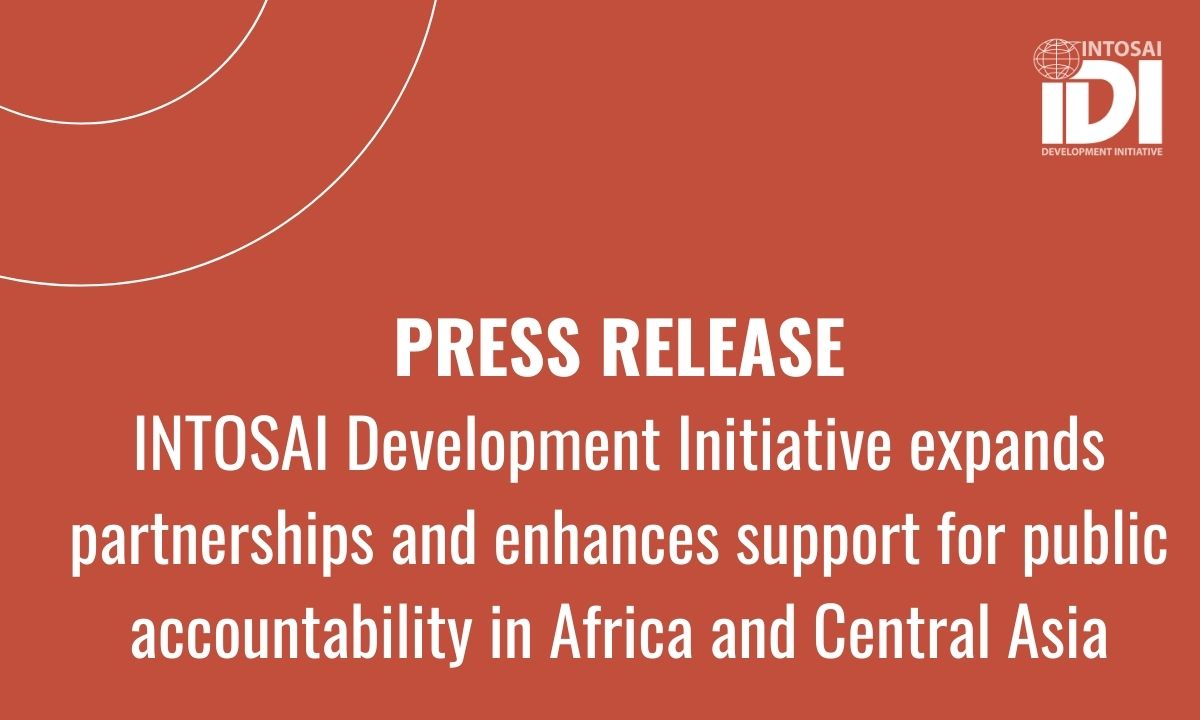
IDI expands partnerships and enhances support for public accountability in Africa and Central Asia
Read more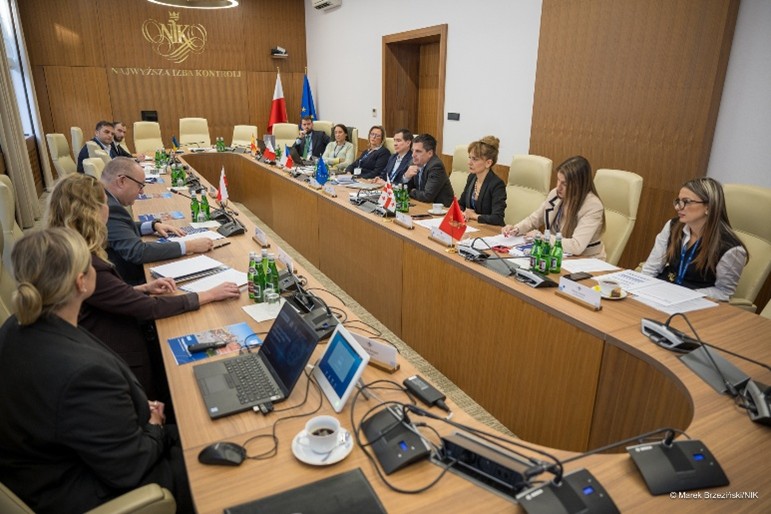
Building Strong Legal Foundations for SAI Independence: IDI’s LEG SAI Initiative
Read more